Is Vancouver safe? What you need to know
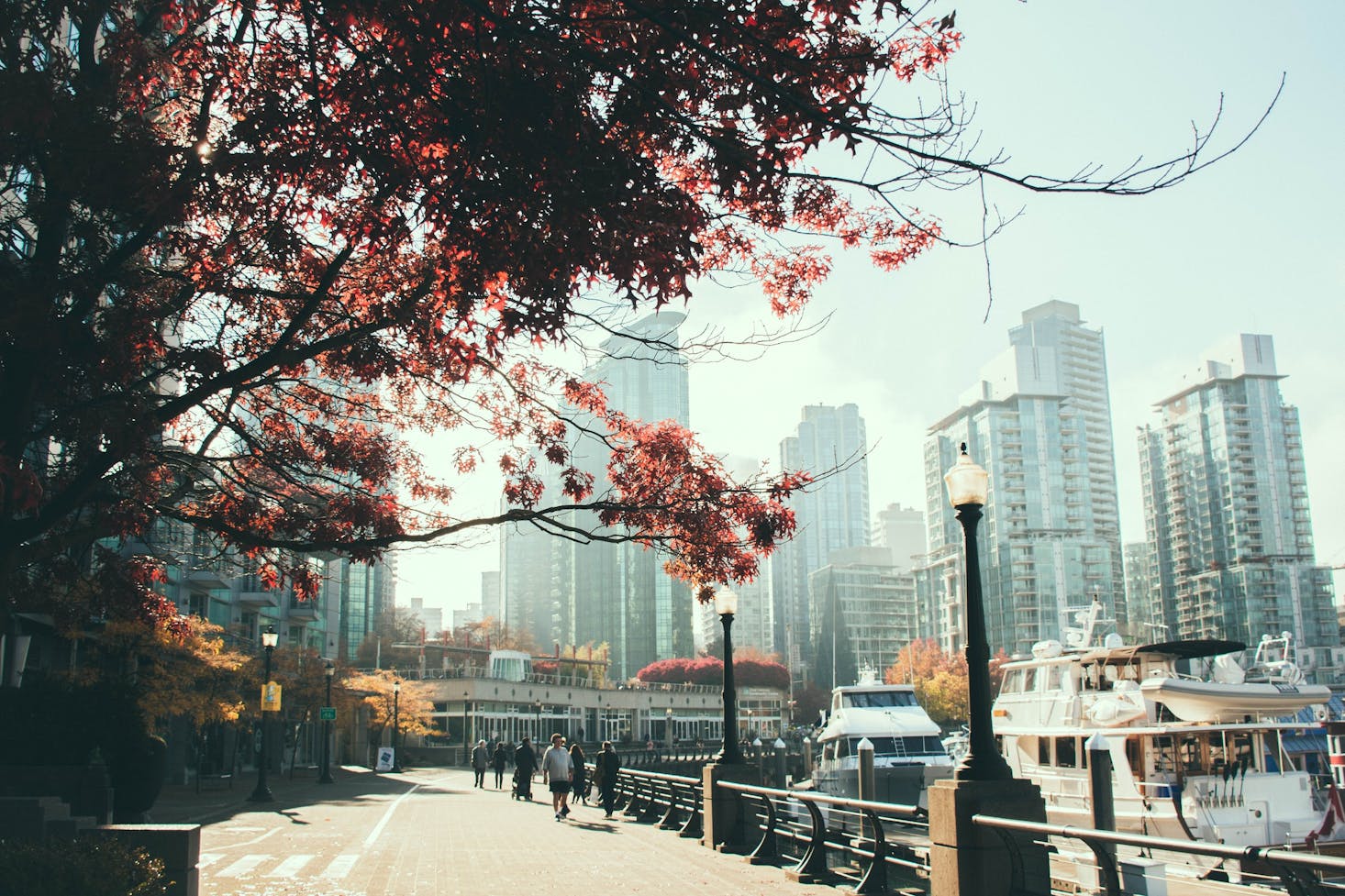
One of the biggest cities in Canada, Vancouver is also one of the most beautiful. Surrounded by towering mountains and the endless forests of British Columbia, Vancouver also sits on the edge of the Pacific Ocean. You could hardly ask for a more scenic location for a city, and like just about everywhere in British Columbia, Vancouver offers ready access to the Canadian wilderness, even from downtown Vancouver itself.
In fact, Vancouver's natural beauty and high standard of living has become a problem of its own. This is one of the most unaffordable cities in the world, with locals often complaining about being priced out of their homes by international millionaires. As a visitor, you don't need to worry about that. Instead, though, you may be asking yourself, is Vancouver safe?
The answer to that is a resounding yes. Canada is a very safe country in general, and Vancouver is far from its most dangerous city. While violent crimes have been on the rise in recent years, you'd have to be extremely unlucky to be a victim of one or even witness one in this still very safe city.
With that said, Vancouver is growing rapidly, and as the population increases and wealth inequality becomes more entrenched, crime does happen. As safe as Vancouver is, there are areas of the city - particularly the Downtown East Side - that are best avoided by tourists.
Unfortunately, this area is very close to Vancouver Cruise Port and some of the city's top tourist attractions, with the result that locals often make jokes about cruise ship passengers accidentally wandering into the city's worst neighborhood.
No city on earth is free of crime. But if you keep your wits about you, avoid the wrong areas, and take advantage of Bounce luggage storage in Vancouver which lets both airplane and cruise ship passengers store any size of luggage in secure locations throughout the city, you'll be as safe as possible while visiting.
Get $5 off with the Bounce app
Use Bounce to find nearby bag storage in 4,000+ cities worldwide.
Get the app
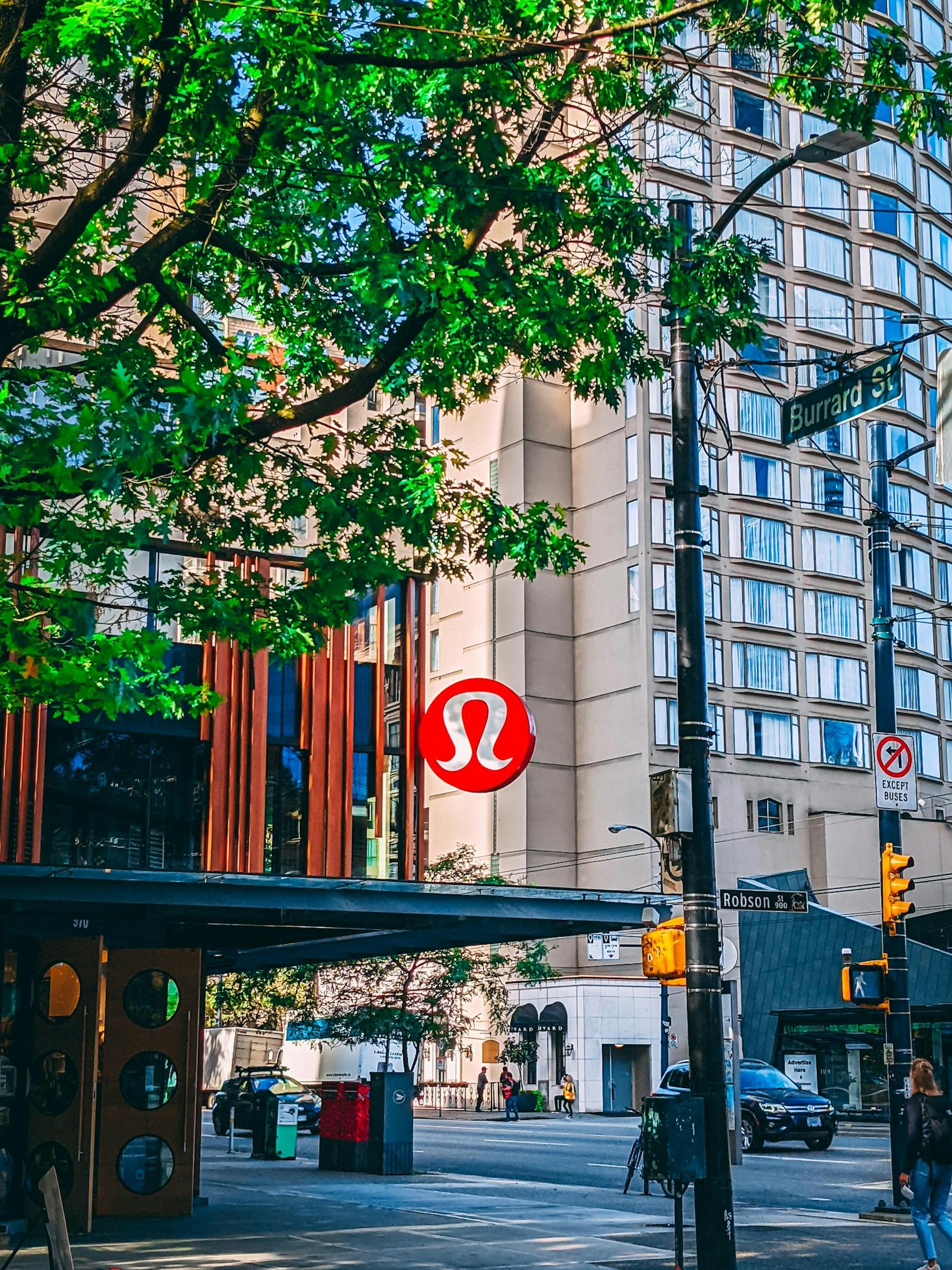
Safety tips to keep in mind during your time in Vancouver
While Vancouver is generally considered one of the safest cities in Canada, being prepared with some practical safety tips will enhance your experience. According to Vancouver Police Department figures, the crime you're most likely to experience here is petty theft and property crime, and you can avoid a lot of that by staying out of the wrong areas, practicing basic personal safety, and taking advantage of luggage storage to protect your things.
Getting from the airport to the City Center safely
Vancouver International Airport (YVR) is about 12 kilometers from downtown Vancouver and offers several convenient transportation options:
- Canada Line SkyTrain: The Canada Line is a fast, affordable, and safe way to reach downtown Vancouver in about 25 minutes. Trains run frequently, but be mindful of your belongings, especially during peak hours. The SkyTrain is driverless, but there are emergency cords you can pull to contact transit police if you feel threatened. The fact that the SkyTrain runs above ground does help to make it safer than buried subway systems, as the stations are well-lit and clearly visible from the street.
- Ride-sharing or taxis: Uber and Lyft are available, as well as reliable taxi services. Always confirm the driver’s name and license plate before entering the vehicle. Fake taxi scams are not nearly as common in Vancouver as they are in other cities around the world, but you should be aware that licensed taxis operate a flat fee from Vancouver International Airport to the city, so don't get overcharged.
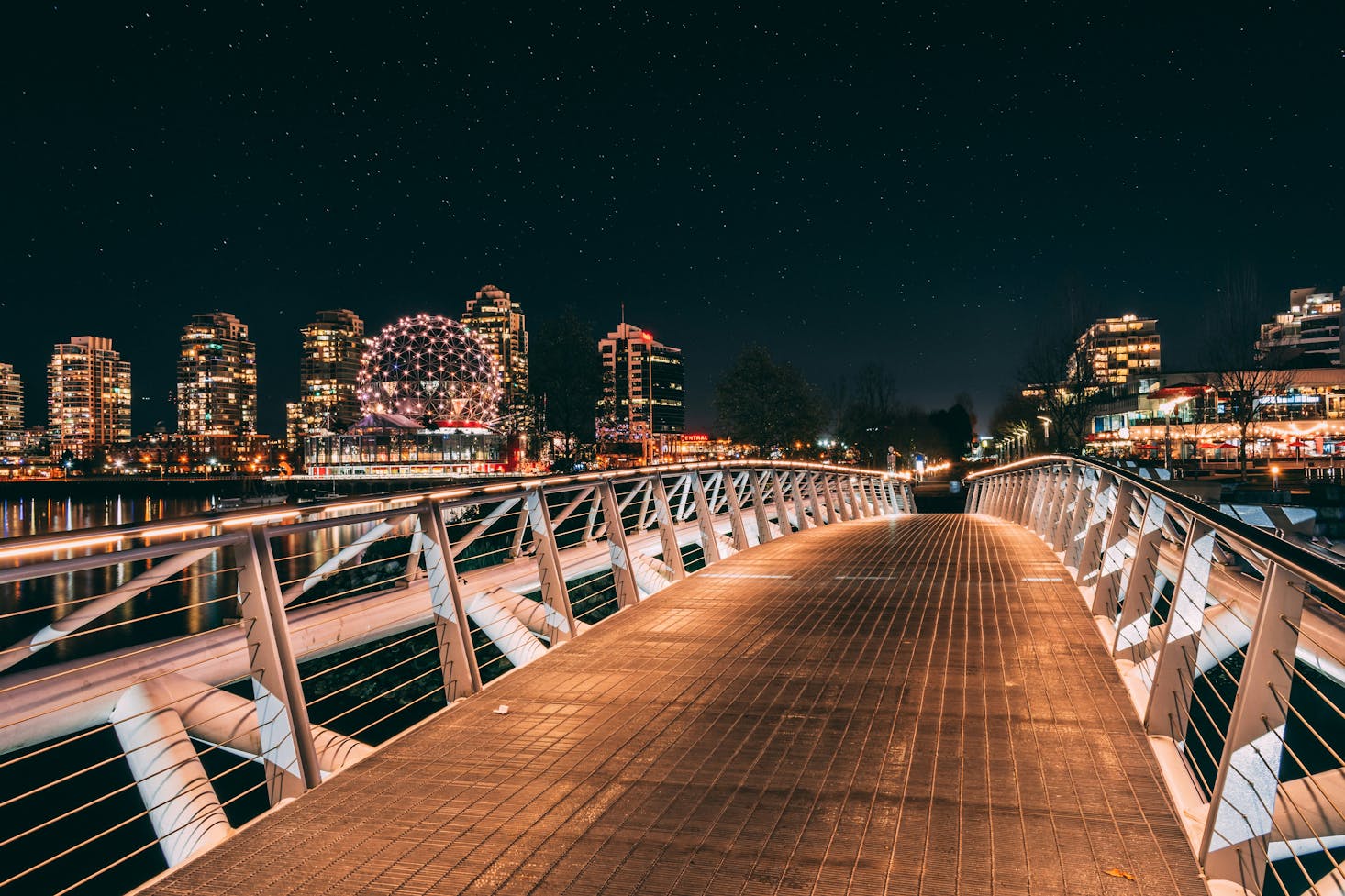
Tips to stay safe when you first arrive in Vancouver
When you first arrive in Vancouver, is difficult not to be blown away by the city's scenic beauty. Walking around downtown with a view of the mountains and the ocean from the West End, it's easy to get distracted. Luckily, downtown Vancouver and most of the areas of the city are very safe, and the worst thing you're likely to run into might be an overly aggressive panhandler.
- Pickpocketing: While not as prevalent as in other major cities, pickpocketing can occur in crowded areas like Granville Island or during events. Keep your valuables close and avoid leaving bags unattended.
- Neighborhood awareness: Research your accommodation’s location. Areas like Downtown, Yaletown, and Kitsilano are safe and vibrant, while parts of the Downtown Eastside may feel less comfortable for some visitors.
- Cultural awareness: Vancouverites are known for their friendliness and eco-consciousness. Respect local customs, such as recycling and using bike lanes appropriately. Smoking cigarettes is also strongly frowned upon in Vancouver, and a municipal bylaw prohibits smoking within 6 m of a doorway or window - which basically means everywhere in downtown Vancouver. Smoking is also not allowed in public parks, and locals will absolutely call you out on it. Smoking cannabis, however, is slightly less frowned upon.
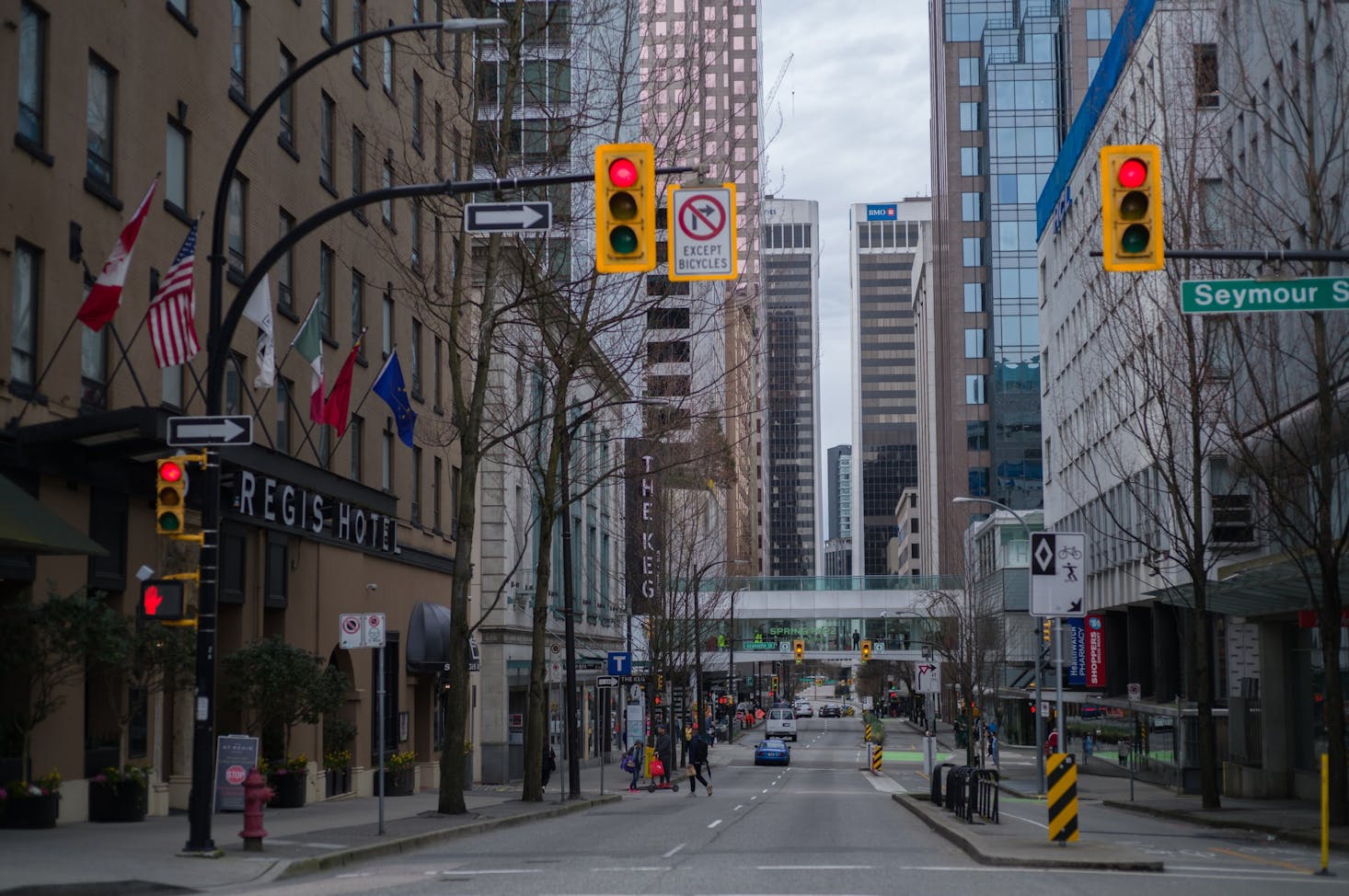
The Downtown East Side
Let's talk about the Downtown Eastside, or DTES, because if you're going to run into trouble in Vancouver, this is most likely where it will happen.
The Downtown Eastside used to be the heart of the city and was always a rough-and-tumble place full of loggers, sailors, and prostitutes. As the name implies, though, it's also very close to downtown itself. The DTES centers on East Hastings Street. Pay attention to whether a street is defined as East or West because it plays a big part in the kind of neighborhood you can expect. Streets change from East to West close to Main Street, but don't be confused: this is not the main street of downtown Vancouver. As a general rule, if you want to avoid crime and squalor in Vancouver, it's better to stay West of Main.
The DTES lies just beyond the increasingly gentrified Gastown area, which is popular with tourists for its historic buildings and steam clock. Stray just a little too far east along Carrall or Hastings Streets, however, and you'll find yourself in a sometimes shocking neighborhood of poverty, homelessness, drug addiction, and visible mental illness.
The Downtown Eastside is actually safer than it looks. Most of the people who live here, the unhoused and vulnerably housed, are far more likely to be victims of crime than they are to be the perpetrators. However, in an area where the median income is $13,691 compared to the citywide average of $47,229, it's not surprising that you'll want to keep an eye on your valuables.
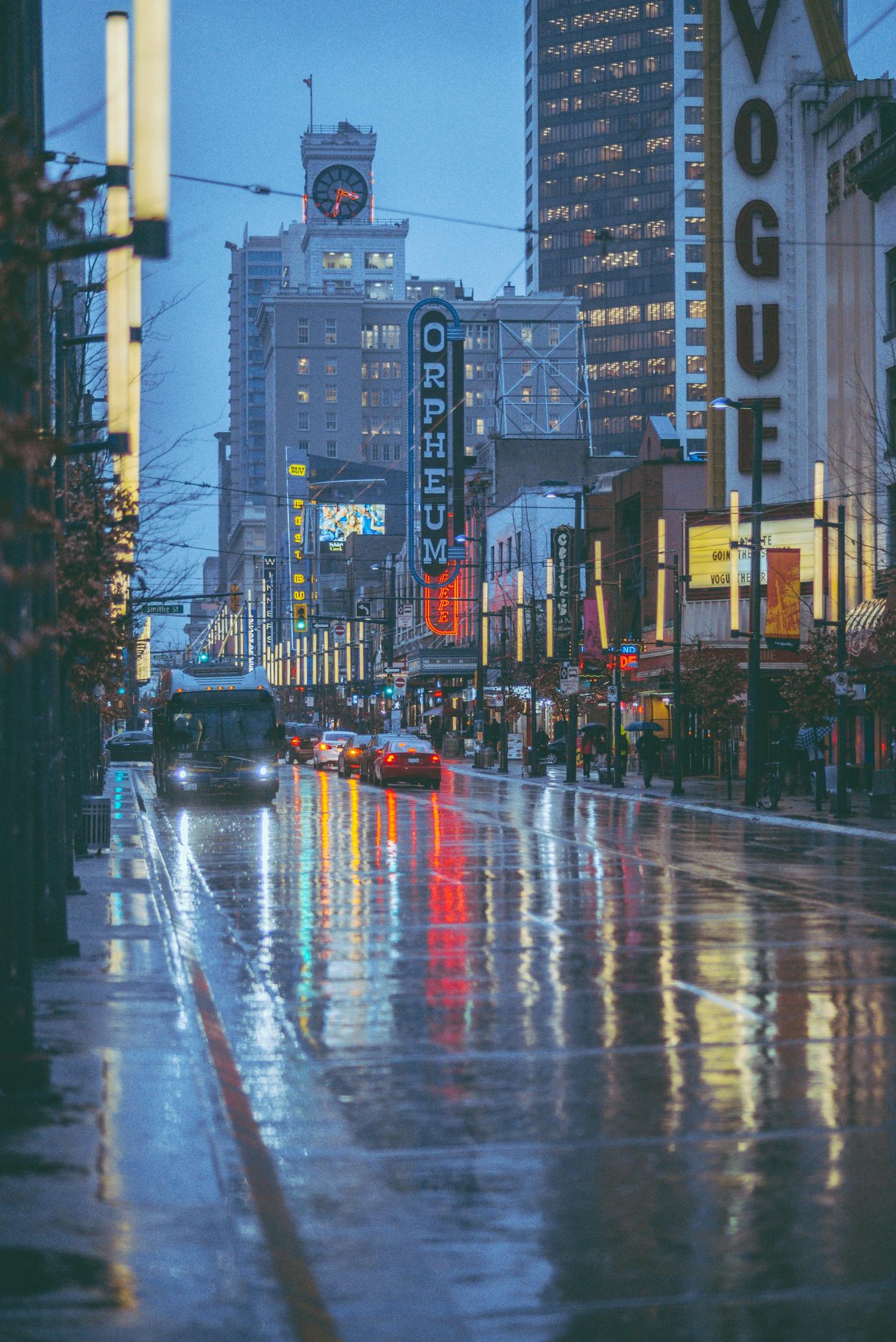
Is tap water in Vancouver safe to drink?
Yes, Vancouver’s tap water is among the cleanest and safest in the world. It’s sourced from nearby mountains and treated to meet strict health standards. Bring a reusable water bottle to refill throughout the day.
Safe accommodation options in Vancouver
Vancouver hotels offer a wide range of safe and comfortable accommodations for all budgets:
- Downtown Vancouver: Ideal for first-time visitors, the Vancouver City Centre area offers proximity to major attractions and is well-patrolled and generally well-lit.
- Yaletown: Known for its upscale vibe and waterfront views, Yaletown is both safe and stylish.
- Kitsilano: A family-friendly neighborhood with a laid-back atmosphere and close proximity to beaches.
- North Vancouver: Perfect for outdoor enthusiasts, this area offers easy access to hiking and skiing.
Pro tip: If you arrive early or need to explore before check-in, drop off your unneeded bags at a Bounce luggage storage location in Vancouver to keep them safe while you get the lay of the land.
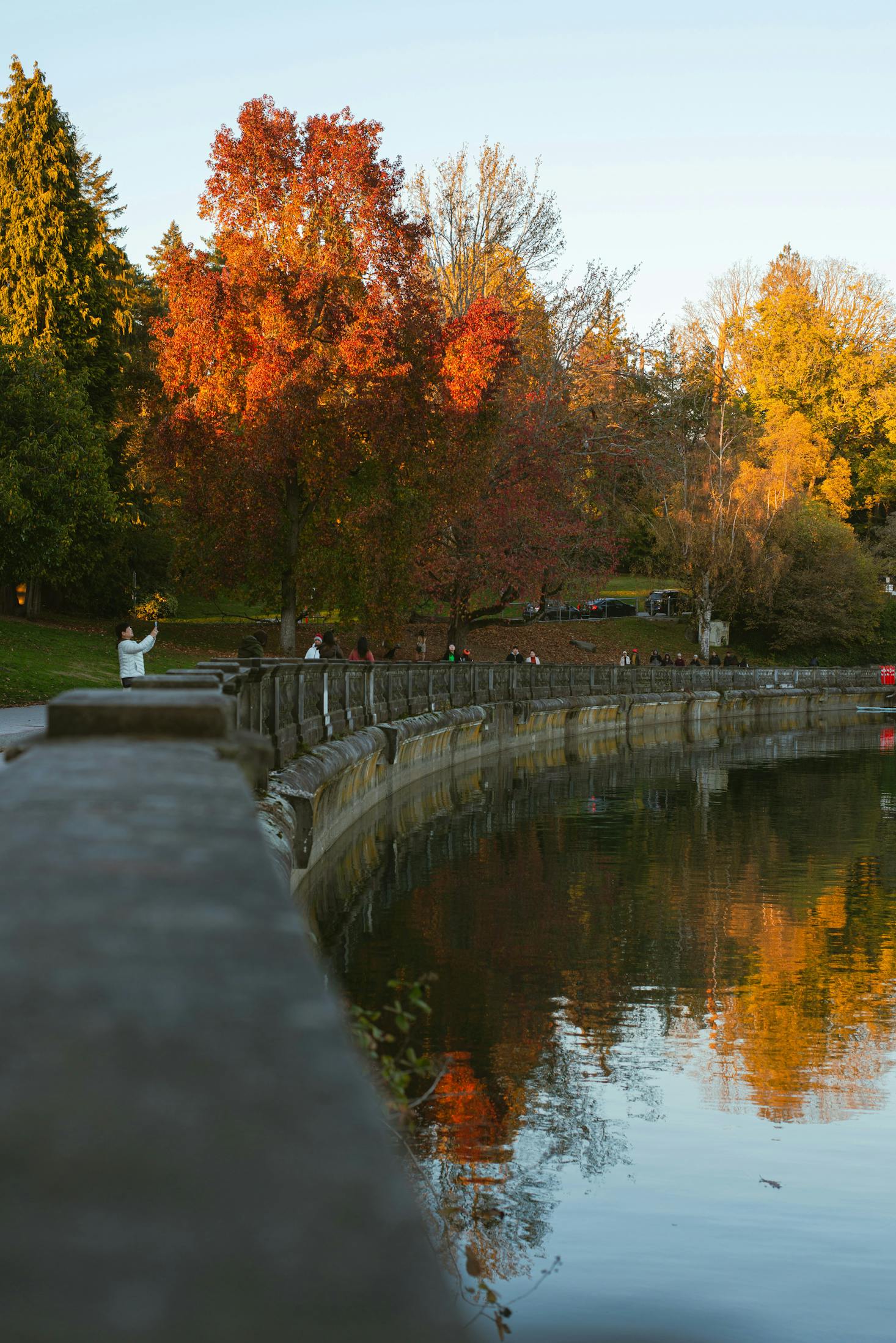
Cultural callouts & things to keep an eye out for
Vancouver’s multicultural identity and progressive values make it a welcoming destination. Here are some tips to help you navigate cultural nuances:
- Etiquette: Vancouverites value politeness and personal space. A simple "thank you" or holding the door for someone goes a long way.
- Dress code: Casual attire is the norm, but layering is key due to the city’s unpredictable weather.
- Language: English is the primary language, but you’ll hear many other languages due to the city’s diverse population.
- Scams: Be cautious of unsolicited offers, particularly in busy tourist areas. Always use official websites for tickets and other services.
Keeping safe when navigating the city
When you visit Vancouver, you'll find it's easy to get around, but it’s essential to know the best ways to explore safely:
- Public transit: TransLink operates buses, SkyTrains, and SeaBuses, which are safe and efficient. Avoid empty stations late at night and keep an eye on your belongings.
- Cycling: Vancouver is a bike-friendly city with dedicated bike lanes. Helmets are mandatory, and bike-sharing services like Mobi are widely available.
- Driving: Traffic can be heavy, especially during rush hours. Be aware of cyclists and pedestrians, and use secure parking facilities. Traffic is especially bad when using either the Second Narrows or Lions Gate bridges and it gets worse on weekends as locals leave Metro Vancouver for the Swartz Bay ferry terminals on the island.
- Walking: Stick to well-lit and busy areas at night. Popular spots like Robson Street and Granville Street are generally safe and lively for nighttime activities when visiting Vancouver.
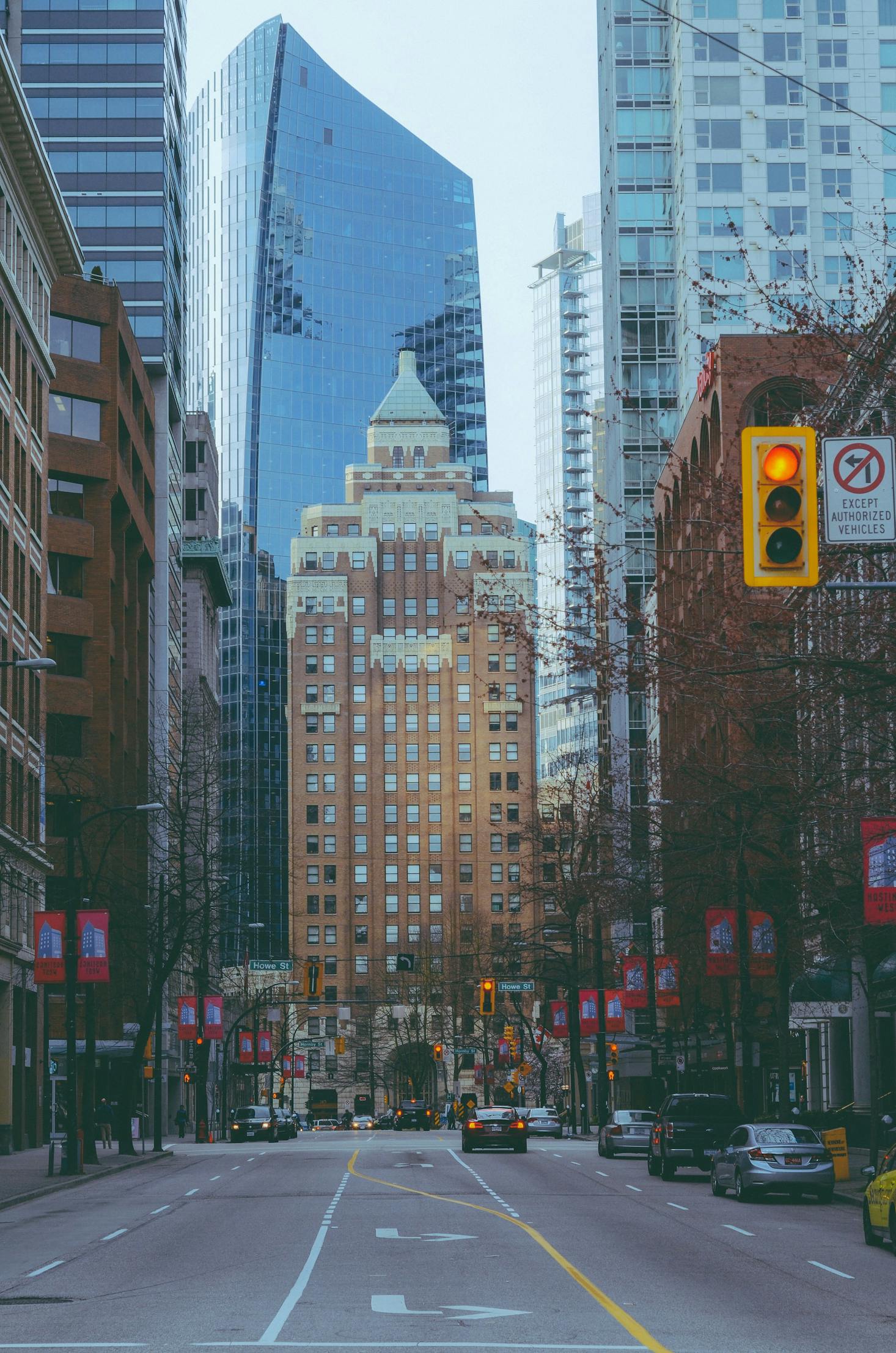
Nature and Vancouver: Safety tips to keep in mind
Vancouver’s natural beauty is one of its biggest draws, but outdoor activities come with their own safety considerations:
- Stanley Park: This iconic park is safe during the day, but avoid secluded areas at night. Stay on designated trails and be cautious of wildlife. Coyotes in particular have become a problem in recent years. Keep your distance and never feed the wildlife.
- Weather: Rain is common, so wear waterproof shoes and bring an umbrella. Snowy conditions in winter may require extra care when driving or walking.
- Wildlife: If you venture into the mountains, be aware of bears and cougars. Carry bear spray and make noise to avoid surprising animals. It pays to be Bear Aware and know the basic rules to follow if you do meet a bear because, outside the city itself, it's not at all uncommon.
- Hiking: Popular trails like the Grouse Grind and Capilano Suspension Bridge (or the equally beautiful but free Lynn Valley Suspension Bridge) are breathtaking but can be challenging. Wear proper footwear and carry water.
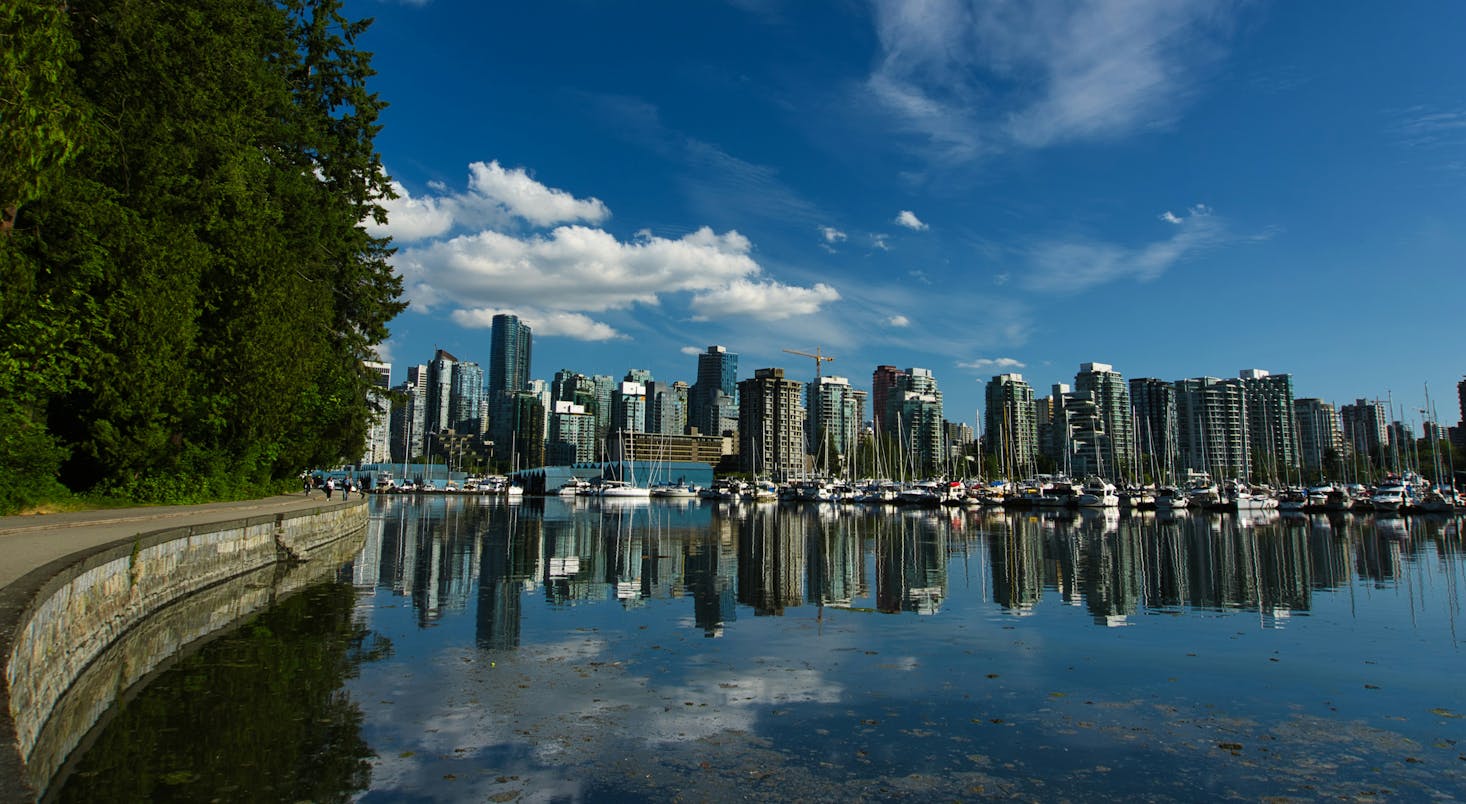
Last tips in case of an emergency
- Emergency numbers: Always use 911 for emergencies. For non-urgent police matters, call 311.
- Healthcare: Vancouver has excellent hospitals, including Vancouver General Hospital. Travel insurance is highly recommended for international visitors. If you're not part of the Canadian healthcare system, you will be charged for hospital visits if you need them. While the prices are not comparable to what you would pay in the United States, it's not cheap either.
- Transportation: In minor emergencies, rideshare apps are often faster and cheaper than ambulances for non-critical situations.
With the possible exception of the Downtown Eastside, Canada's poorest neighborhood, Vancouver is a remarkably safe city where you are extremely unlikely to be a victim of violent crime. Petty crimes, such as having a rental car broken into, are much more common, so pays to practice basic common sense safety precautions like not leaving valuables unattended. Do that, and you're very unlikely to have a problem while you enjoy this splendid city and even enjoy downtown Vancouver late into the night.
Get $5 off with the Bounce app
Use Bounce to find nearby bag storage in 4,000+ cities worldwide.
Get the app
